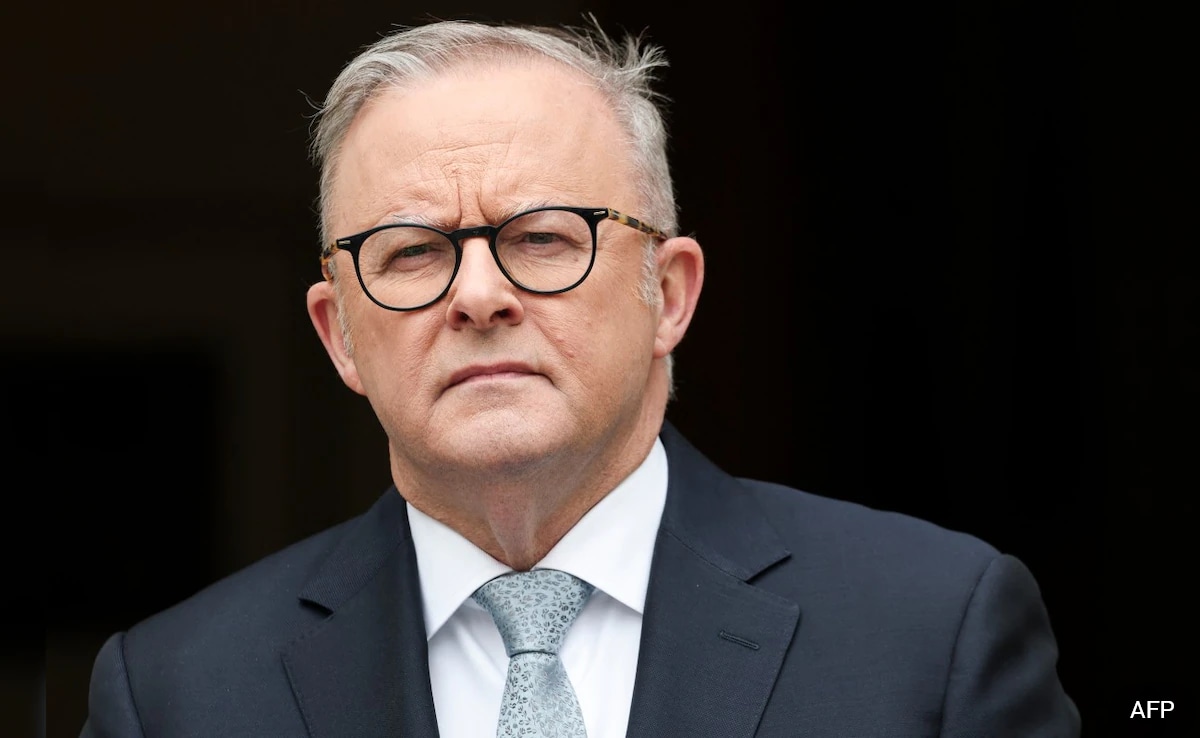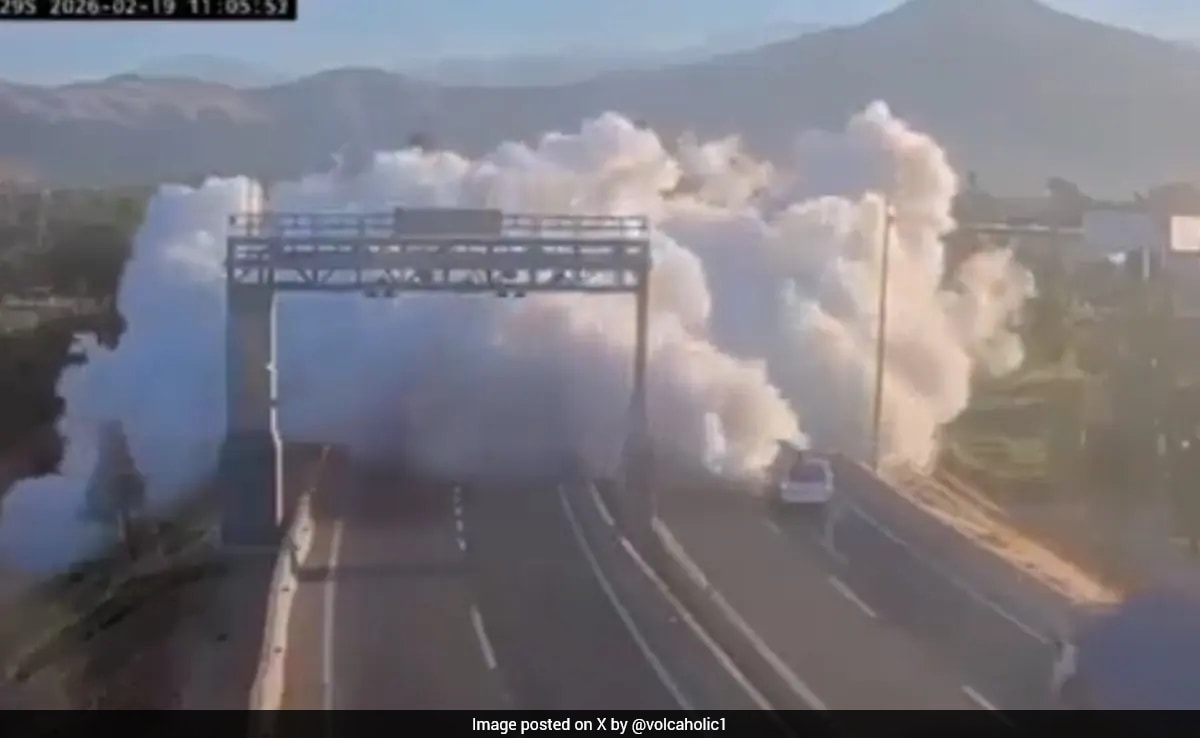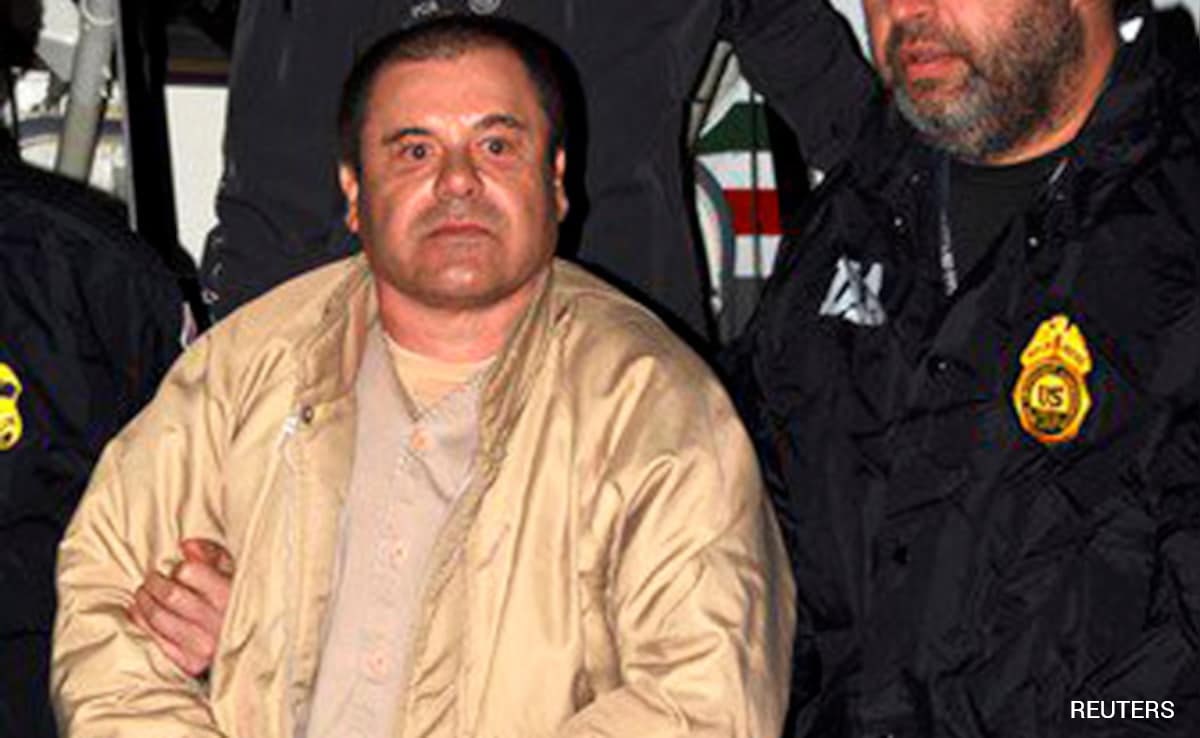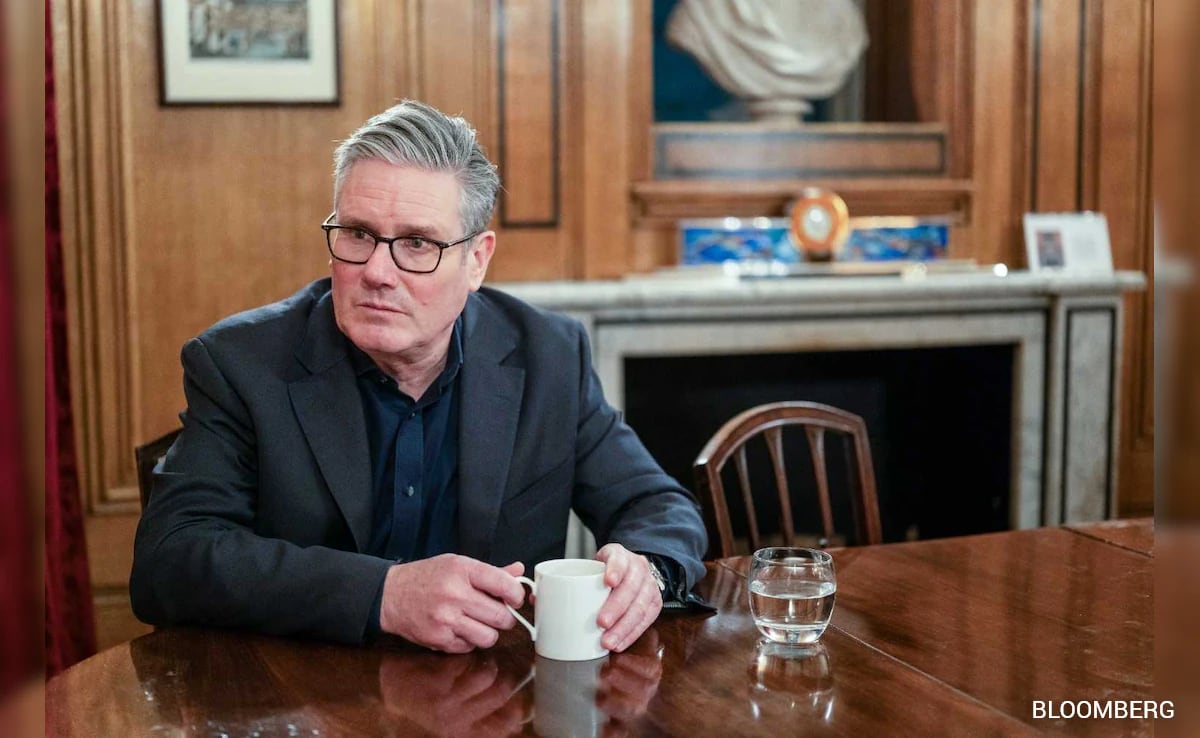Gruesome images of bound corpses raised questions about where the 27-country bloc draws its red lines on Russian energy. Meanwhile, Washington has promised a war crimes investigation, while the Kremlin dismissed the scenes as “staged provocations.”
Here’s what to know
Tolstoy descendant takes in Ukrainian refugees
Return to menuThe great-granddaughter of Russian literary giant Leo Tolstoy has decried the war in Ukraine and taken in refugees, according to French news agency Agence France-Presse.
Marta Albertini, 84, who lives in Switzerland, told AFP “it was instinctive” for her to open one of her homes in the Swiss Alps to Anastasia Sheludko, 24, and her mother, who fled from Mykolaiv in southern Ukraine.
Russian President Vladimir Putin has quoted Tolstoy in the past, sparking headlines and speculation last year when, following a summit with President Biden, he said: “There’s no happiness in life, only a mirage of it on the horizon.”
But Tolstoy, who wrote “War and Peace” and “Anna Karenina,” would have viewed the current war with “horror” and would have been “completely devastated” by it, Albertini said, adding that he was a well-known pacifist.
Albertini said it was important to speak out, adding that she and other descendants of Tolstoy wrote a letter to Putin to express their outrage over his invasion.
“We are against the horrors that are being perpetrated now, the invasion of an innocent country,” she said. “Europe, the world, will not be the same after this war.”
Tolstoy had 13 children before he died in 1910. Most of them fled Russia after the 1917 Bolshevik Revolution that led to the killing of Czar Nicholas II and his family, as well as the slaughter of thousands of Russian aristocrats.
Town by town, Ukrainian prosecutors build Russian war crimes cases
Return to menuKOSIV, Ukraine — Sitting stage left in an empty auditorium at School No. 2 in this sleepy village about 30 miles from the Romanian border, a woman and her adult son described to a Ukrainian prosecutor how Russian tanks arrived in their village outside Kyiv on March 25, how part of their roof collapsed from Russian bombing and how they helped bury an elderly neighbor in his own front yard while munitions screamed over their heads.
Olga Gazhurova, a 34-year-old prosecutor from the bombarded city of Kharkiv in northeastern Ukraine, typed their account into her laptop, pausing for clarification.
“From which street, exactly, did the tanks enter?” she asked.
Before the full-scale Russian invasion of Ukraine began on Feb. 24, Gazhurova was a criminal prosecutor in Kharkiv, more than 500 miles from Kosiv, a village of about 8,400 people that has seen little of the war’s violence but a significant chunk of its consequences. Hundreds of displaced people have bunked in Kosiv’s schools or with its residents. Millions of Ukrainians have been forced to leave their homes, and more than 4.2 million Ukrainians had left the country as of April 3, according to the United Nations.
Horrors in Mariupol ‘much worse’ than in Bucha, Ukrainian foreign minister says
Return to menuWhile scenes of the Kyiv suburb of Bucha have grabbed attention in recent days, showing mass graves and bodies scattered in the streets, the situation in the seaside city of Mariupol is “much worse,” according to Ukrainian Foreign Minister Dmytro Kuleba.
“The horrors that we’ve seen in Bucha are just the tip of the iceberg of all the crimes that have been committed by [the] Russian army in the territory of Ukraine so far,” Kuleba said Monday, speaking at a news conference with British Foreign Secretary Liz Truss in Warsaw.
“I can tell you without exaggeration, but with great sorrow, that the situation in Mariupol is much worse,” he said.
Graphic scenes of mass graves and corpses — some apparently shot in the head with their hands tied behind their backs — lying in the streets of Bucha have captured the world’s attention, prompting many leaders to further condemn Russia’s invasion of Ukraine.
President Biden said the killings in Bucha constitute a “war crime,” prompting him to seek new sanctions on Russia.
Mariupol, in southeastern Ukraine near a separatist region on the country’s eastern border, has been subjected to heavy shelling by Russia, and as many as 130,000 residents there have been trapped without food, water or electricity as a humanitarian convoy has struggled in recent days to reach the city.
With Russian troops pulling back from the area around Kyiv, laying bare the civilian losses in Bucha, it is widely thought that Moscow is regrouping its military to focus on capturing Ukraine’s southern and eastern regions, which include Mariupol.
Ukrainian newborns are named after Javelin missile
Return to menuThe meanings behind some given names are subtle. For instance, James — the most popular name of the past century for American boys, according to the Social Security Administration — means “supplanter,” or one who takes by force or strategy.
Then there are the more plainly said, as in the case of two newborns in Ukraine who have been named after the Javelin, an antitank missile system that has been supplied to Ukraine to aid in its defense against Russia. The Javelin is shoulder-mounted and uses heat maps to identify targets.
A newborn boy in the Vinnytsia area of central Ukraine was named Yan Javelin, and a newborn girl in Kyiv was named Javelina, according to Ukraine’s Justice Ministry and former first lady Kateryna Yushchenko.
Ukraine is grateful for the weapons that have helped us fight. In Vinnytsia Oblast, parents have registered two newborns under new, unusual names - boy named Yan Javelin and a girl named Javelina…
— Kateryna Yushchenko 🌻 🇺🇦 (@KatyaYushchenko) April 4, 2022The Javelin missile is named after the spear used in track-and-field sporting events that is thrown upward and falls sharply. The missile is particularly effective at damaging tanks because it can strike from the top.
Just knowing that the Ukrainians have Javelins “causes panic” among Russian troops, the Ukrainian military boasted on Twitter. Attached was a photo of what the military said was a Russian tank struck by a Javelin missile.
Diplomats at U.N. urge Russia to stop using land mines
Return to menuA senior diplomat overseeing the implementation of a global treaty banning the use of land mines condemned Russia’s alleged deployment of the weapons in its invasion of Ukraine, days after Kyiv reported finding mines in the east of the country.
Alicia Arango Olmos, Colombia’s ambassador to the United Nations in Geneva and this year’s president of the Anti-Personnel Mine Ban Convention, said mines usually end up killing innocent noncombatants like children. She was speaking at a news briefing on Monday, which was the International Day for Mine Awareness and Assistance in Mine Action.
“Anti-personnel mines only cause victims. They don’t resolve any type of problem,” she said when a reporter asked what her appeal to Moscow would be. “To Russia: Please stop using them, because many of the people that are victims of land mines have nothing to do with their problem, or what’s happening between Ukraine and Russia.”
Human Rights Watch said last week that Ukrainian explosive ordnance disposal technicians had found anti-personnel mines that had been laid out by Russian forces in Kharkiv, Ukraine’s second-most-populous city, which has been under Russian siege since the first days of the invasion in February. The Russian mine, known as the POM-3, can hit targets within a radius of 50 feet, Human Rights Watch said, citing a Russian military news website.
More than 160 countries including Ukraine are signatories of the treaty prohibiting the use, production, stockpiling and transfer of anti-personnel mines. Russia, the United States and China are among nations that have not ratified the agreement.
Human Rights Watch said Russia’s apparent use of the land mines marked a rare instance in which a nonparty country to the treaty had used them in a country that was. Ukraine signed the treaty in 1999 and became a state party in 2006.
Two E.U. leaders to travel to Kyiv to meet Zelensky
Return to menuEuropean Commission President Ursula von der Leyen and the European Union’s top diplomat, Josep Borrell, will travel to Kyiv to meet with Ukrainian President Volodymyr Zelensky sometime this week, according to an E.U. spokesman.
The meeting in the Ukrainian capital will take place at some point before a “Stand up for Ukraine” event on Saturday in Warsaw, commission spokesman Eric Mamer tweeted Tuesday, offering no other details.
The trip to meet Zelensky was announced a few days after Roberta Metsola, president of the European Parliament, made a similar trip to express E.U. support for the Ukrainian cause.
In the days since her visit, reports of possible war crimes in the Ukrainian city of Bucha have led to forceful calls for the European Union to step up its pressure on Russia.
A new package of sanctions is expected this week. However, the E.U. remains divided on what to include, particularly on the question of whether or how to cut off imports of Russian oil and natural gas.
Zelensky says concrete security commitments needed for peace deal
Return to menuUkrainian President Volodymyr Zelensky called Tuesday for more serious commitments from countries willing to serve as guarantors of Ukraine’s security in a possible peace agreement with Russia.
“So far, we have not received a full list of … countries that are 100 percent ready to get involved” by supporting Ukraine’s defense in the event of another Russian attack, Zelensky said in a televised interview.
In Istanbul two weeks ago, Ukrainian negotiators said they offered Russia a deal under which Kyiv would pledge to remain “nonaligned and nonnuclear” if a set of countries including the United States, Turkey and others agreed to support Ukraine’s military if Russia were to attack again.
Kremlin spokesman Dmitry Peskov said in a briefing Tuesday that Moscow does not reject the possibility of a meeting between Russian President Vladimir Putin and Zelensky, but only once the two countries’ delegations reach a form of agreement in the negotiations. “Nothing has changed for us,” Russia’s Tass news agency quoted him as saying.
Zelensky said security guarantees were the No. 1 item on Ukraine’s list of demands for a peace deal, and he implied that concrete commitments on that front had yet to materialize.
“We do not need 40 countries in the world,” he said. “We need serious players that are ready for everything. We need a circle of states that are ready to provide any kind of weapons within 24 hours. We need distinct countries that sanctions policy really depends on.”
Zelensky said security guarantees are needed because joining NATO is not a realistic option, although he said that “we are ready to join tomorrow” if asked. In a speech announcing the invasion of Ukraine, Putin called NATO’s “eastward expansion” a fundamental threat to Russia’s security.
Amar Nadhir and Annabelle Chapman contributed to this report.
French prosecutor’s office opens three war crimes probes
Return to menuPARIS — France’s counterterrorism prosecutor’s office opened three probes Tuesday into alleged war crimes in Ukraine, amid mounting legal scrutiny of Russian soldiers’ acts in the country.
In a statement, the prosecutor’s office said the probes concerned “acts likely to have been committed to the detriment of French nationals in Ukraine in recent weeks,” giving French courts jurisdiction.
French authorities said the incidents were believed to have occurred in Mariupol, Hostomel and Chernihiv between Feb. 24 and March 16. The presumed crimes include “deliberate attacks against civilians not taking part in hostilities,” “voluntary attacks causing psychological harm,” deliberate damage or destruction of civilian objects and property, and depriving civilians of items that are essential for survival.
The French probes highlight mounting Western efforts to hold Russia accountable for its invasion of Ukraine through judicial means.
After images of destruction emerged from Bucha last week, French President Emmanuel Macron wrote on Twitter that “the Russian authorities will have to answer for these crimes.”
French prosecutors had already opened an investigation last month into the death of Pierre Zakrzewski, a French-Irish cameraman with Fox News, who was killed in Ukraine on March 14.
Germany takes control of subsidiary of Russia’s Gazprom, citing national security
Return to menuGermany moved Monday to take control of a subsidiary of Russian energy giant Gazprom, three days after the St. Petersburg-based company said it was abandoning business in the country.
European governments are debating the feasibility of an embargo on Russian oil and gas, as photos showing evidence of atrocities continue to emerge from the Ukrainian town of Bucha, near the capital, Kyiv. Russian forces recently retreated from Bucha, leaving behind what many Western governments have described as evidence of war crimes.
The debate has highlighted the role of Germany, which Poland’s prime minister accused of being the main European Union holdout after German leaders sent mixed messages Sunday and Monday about their willingness to stop buying Russian energy. A third of Germany’s crude oil and half its coal came from Russia last year.
The German Finance Ministry said Monday in a news release that the Bundesnetzagentur, the federal agency that regulates the energy sector, would take control of the Gazprom Germania Group until Sept. 30.
The ministry said its decision to place Gazprom’s German subsidiary under the trusteeship of the government came “against a background of unclear legal relationships and follows the violation of the reporting obligation under the Foreign Trade and Payments Ordinance.” It said it was not clear who owns the two Russian firms moving to acquire and liquidate Gazprom Germania, calling that a national security risk.
The ministry said the company “operates critical infrastructure in Germany and is therefore of outstanding importance for the gas supply.”
Also on Monday, Germany joined other European nations in moving to expel 40 Russian diplomats.
Emily Rauhala and Rick Noack contributed to this report.
E.U. eyes ban on Russian coal in response to Bucha massacre
Return to menuThe European Union is set to propose a phaseout of Russian coal and other new penalties on Russia, according to an E.U. official and an E.U. diplomat.
The European Commission will propose the measures Tuesday. The package would then need to be approved by all 27 E.U. member states.
.png)











 English (United States) ·
English (United States) ·  Turkish (Turkey) ·
Turkish (Turkey) ·